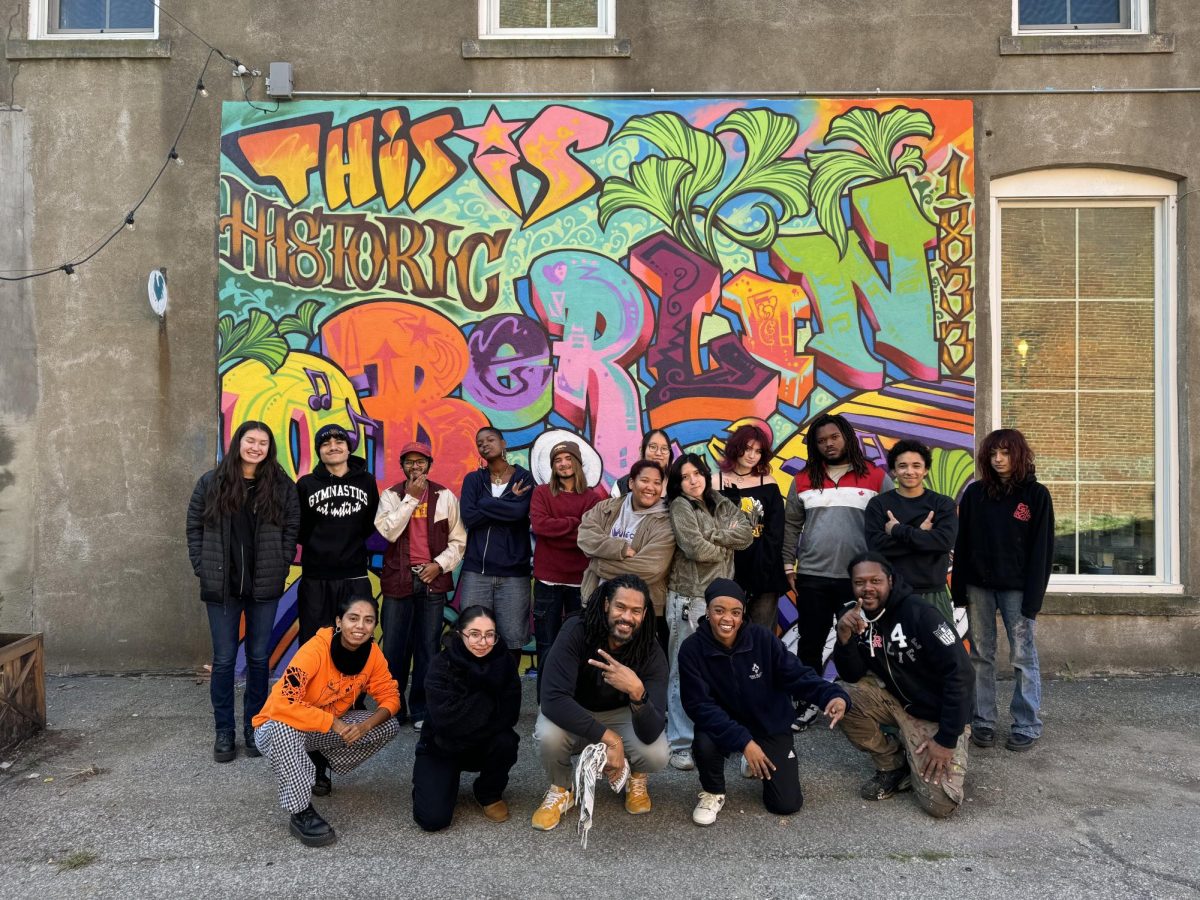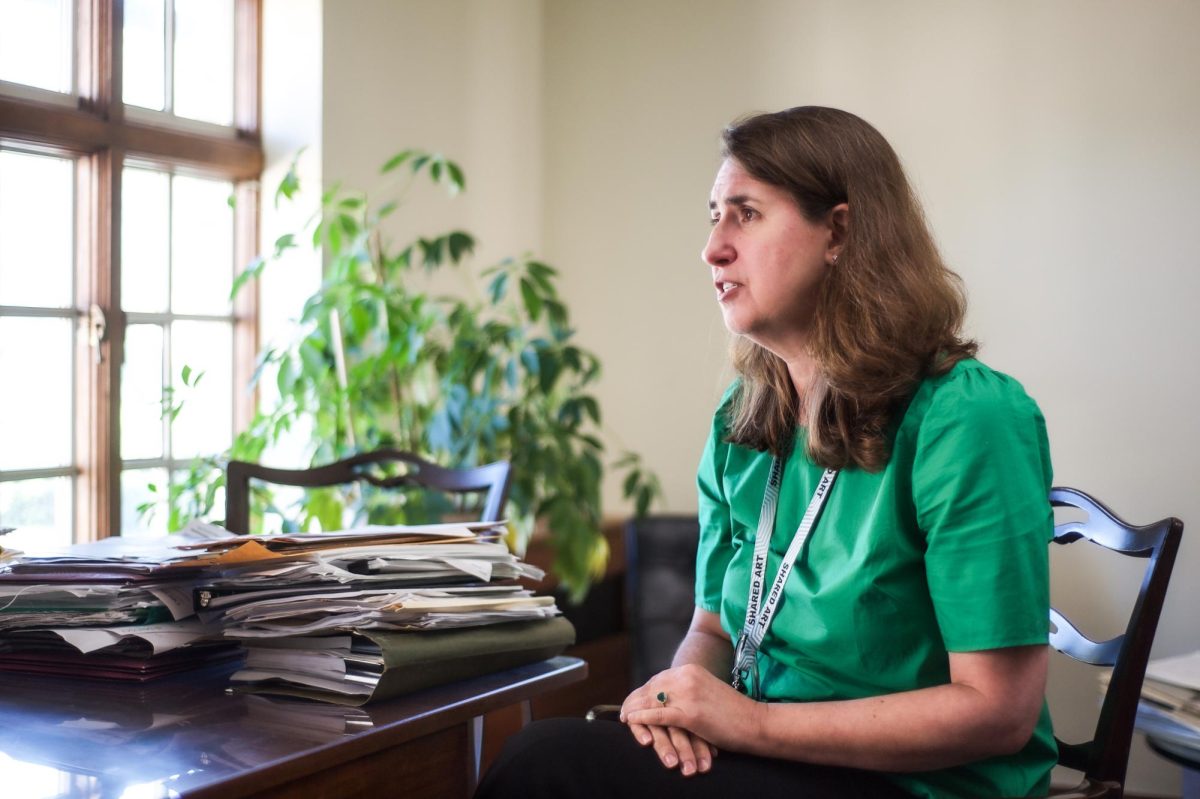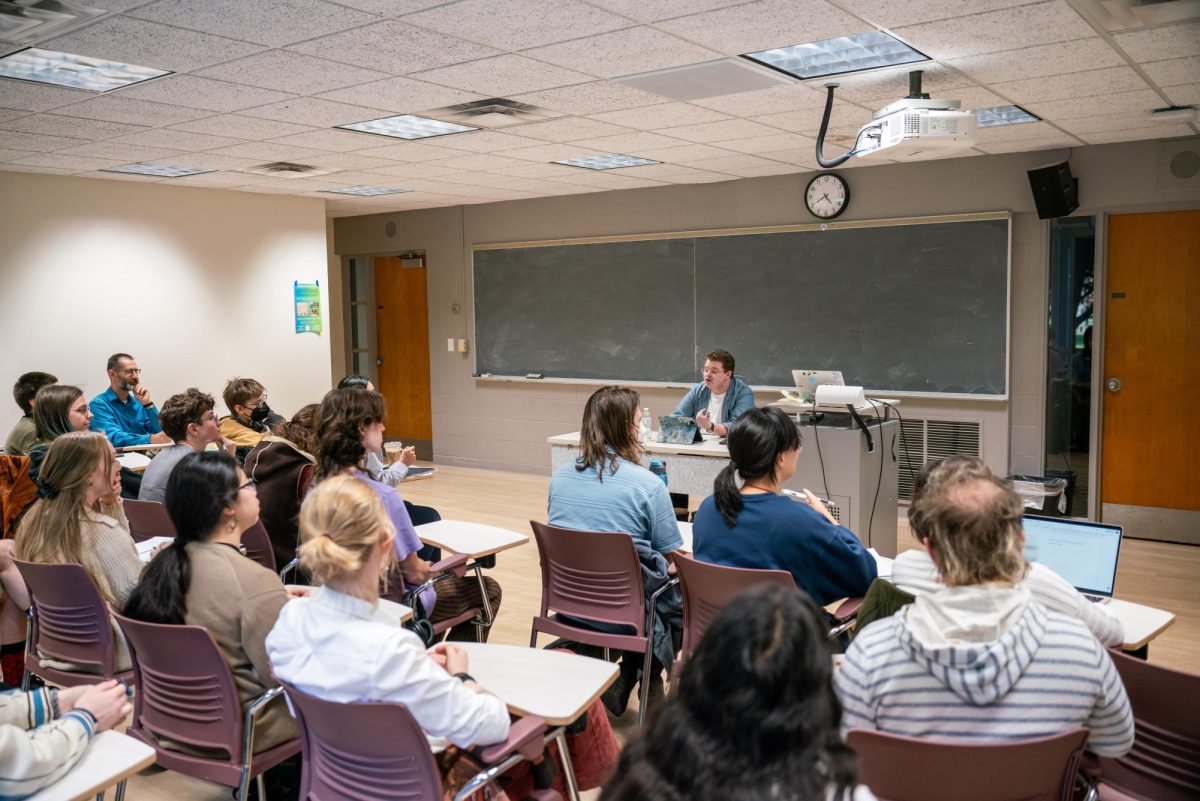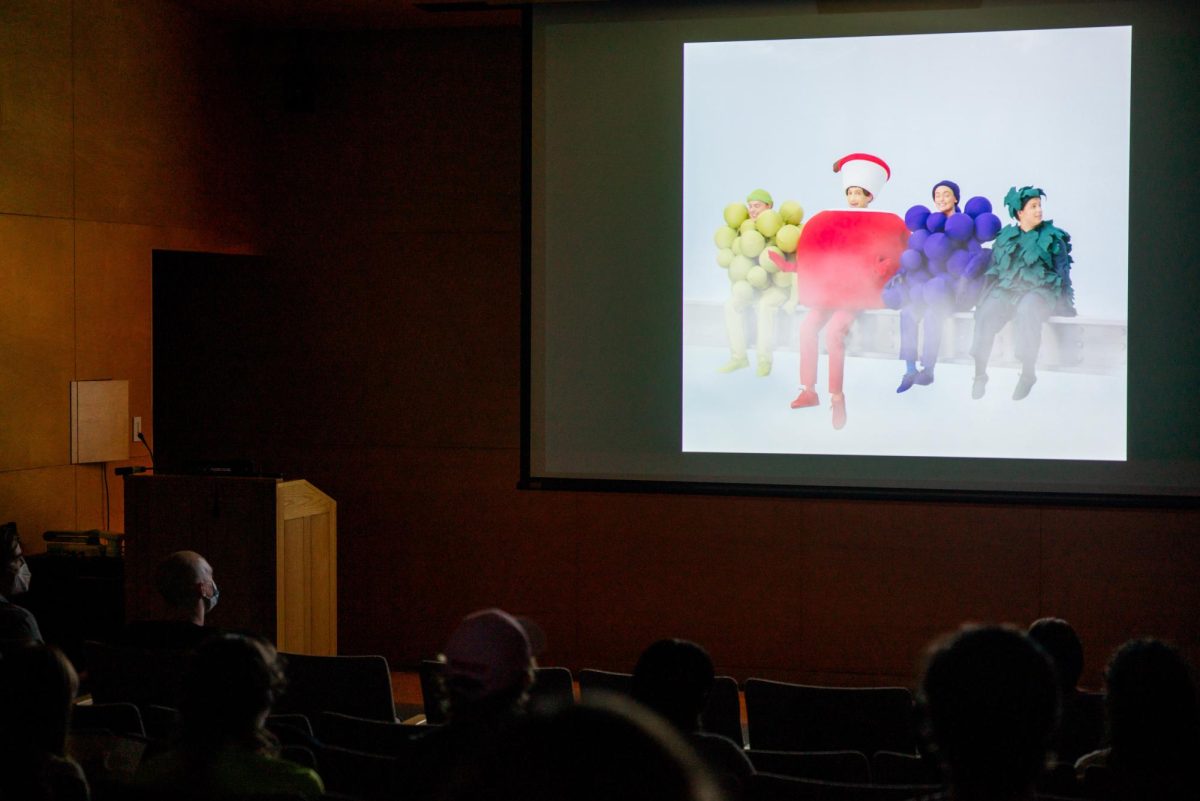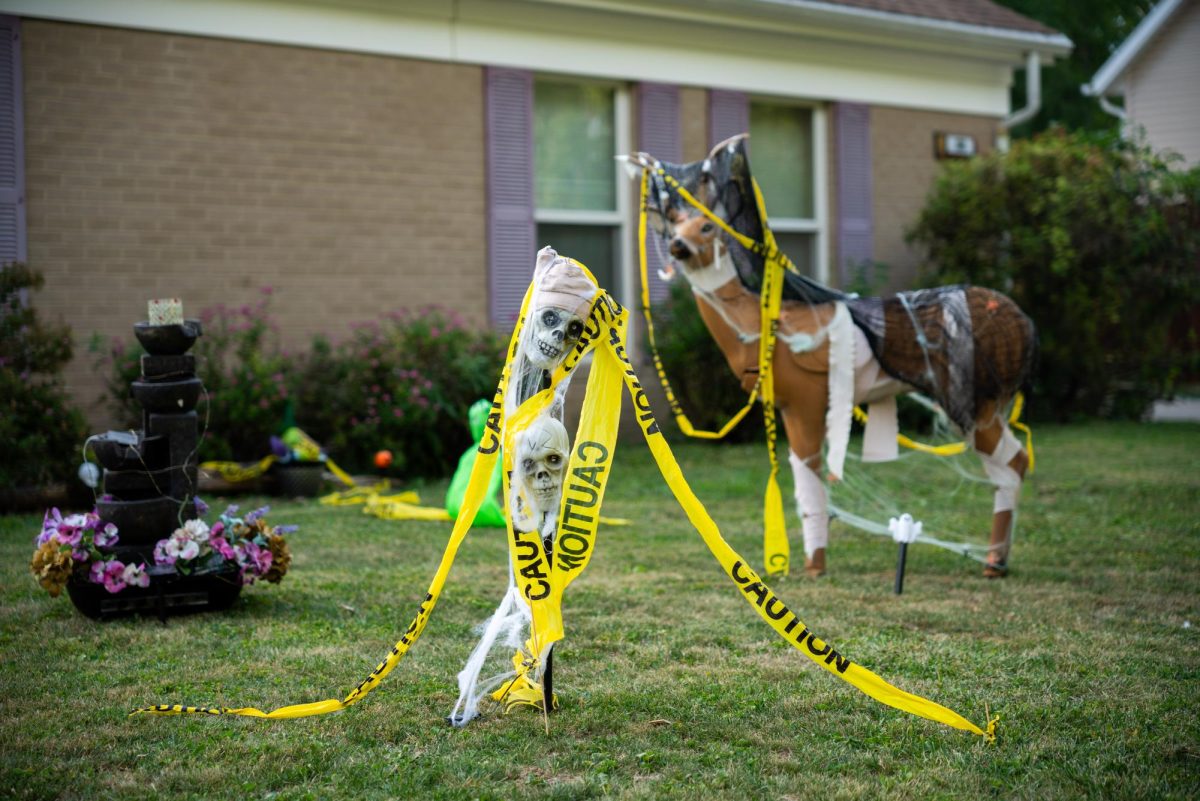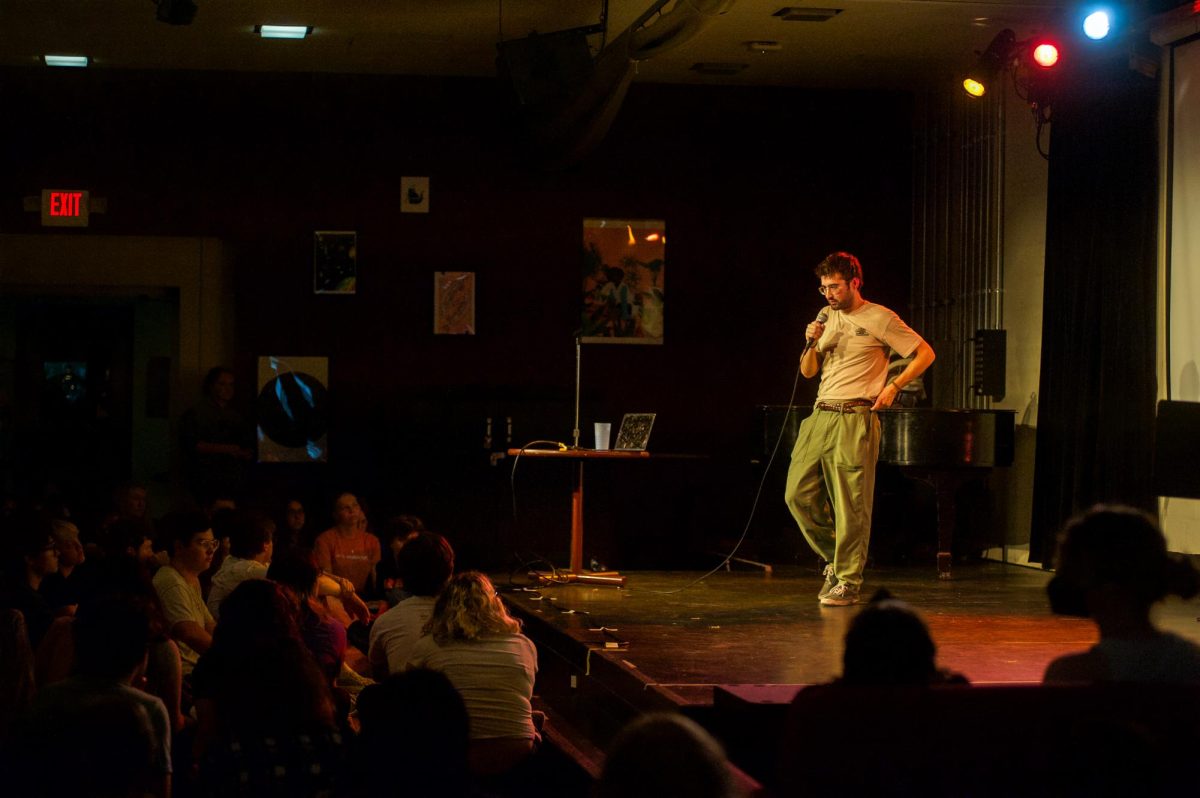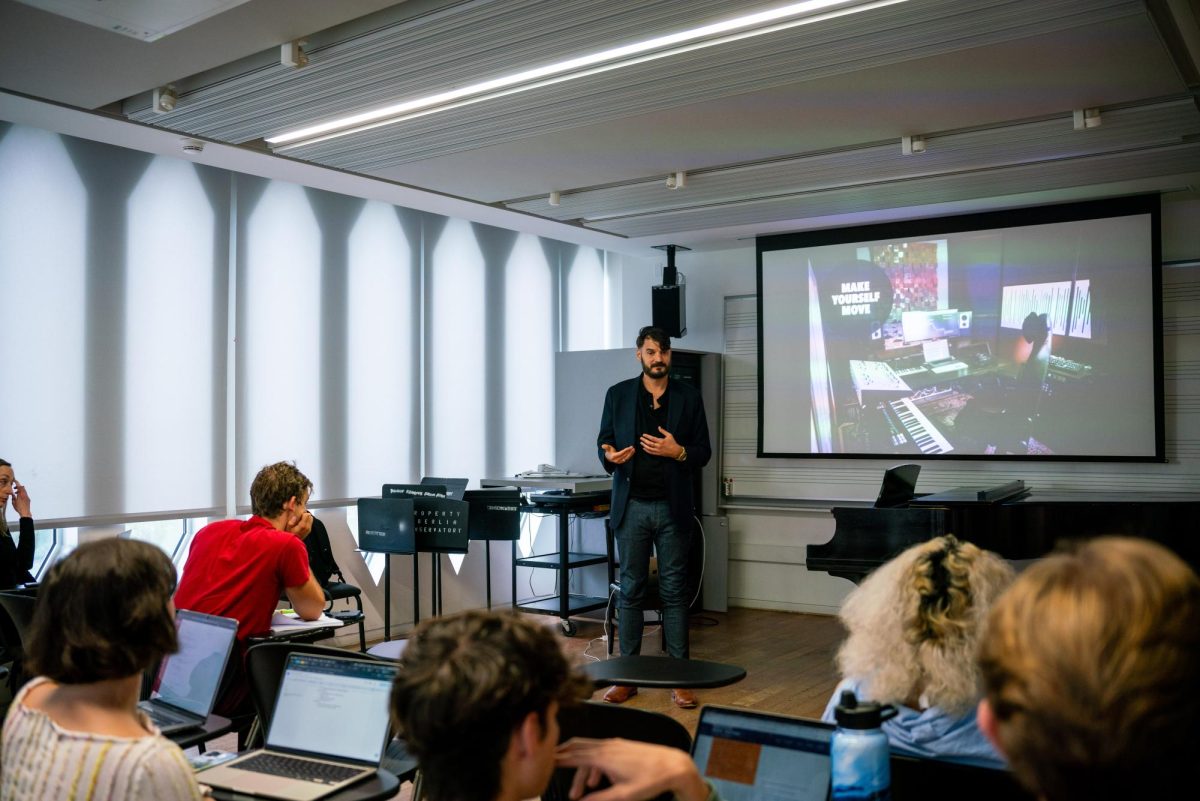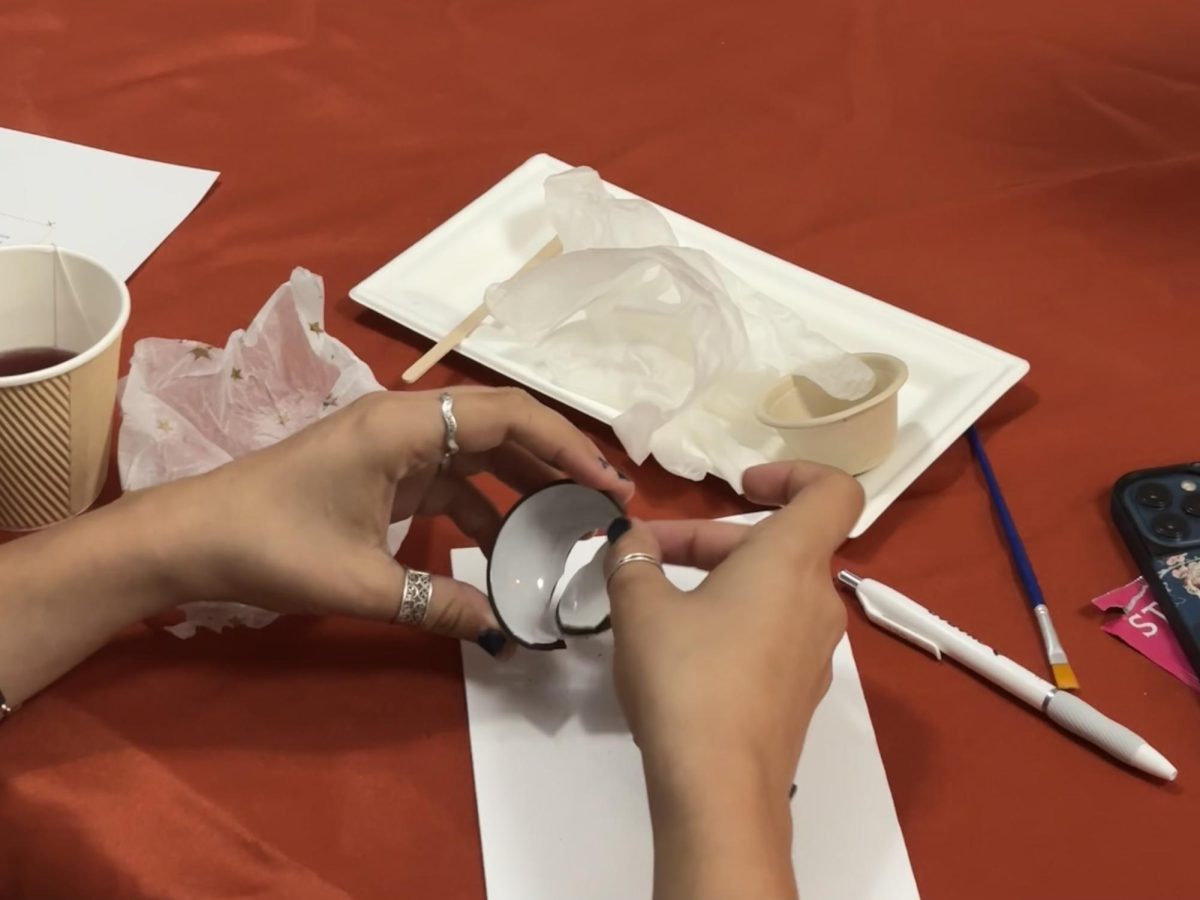On Sunday in Moffett Auditorium in Mudd Center, Rohan Zhou-Lee led a Black-Asian-Blasian Solidarity Workshop with students exploring how everyone can cultivate and strengthen solidarity between displaced and marginalized groups.
Zhou-Lee is a queer/nonbinary Black and Asian artist and organizer from New York City. They are a dancer, trumpeter, and writer of poetry, essays, and Afro-Asian fantasy. They are also the founder of the Blasian March, which their website describes as “an initiative to build solidarity between Black, Asian, and Blasian communities through education and celebration,” and they most recently were involved with an Oct. 16 Black Asian Trans Power Rally. The Blasian March, which was first launched in October 2020, has since traveled from its origin in New York City to New Haven, Los Angeles, Chicago, and Sacramento and will be extending to Orlando and San Francisco next fall. It creates opportunities for rallies, community fridges, healing circles, and literature, all while carrying the torch of solidarity and social justice across the country.
Zhou-Lee values intersectionality, accessibility, environmental sustainability, and collaboration with Native communities. Their quick visit to Oberlin drew many students, and their workshop aimed at cultivating a safe space for cross-cultural connection.
Zhou-Lee shared their experience and philosophy on Blasian activism with Oberlin students through an immersive lecture, encouraging students to take their own agency and prompting them to plan fun, community-centered events to intentionally promote solidarity between Black and Asian communities on campus. The workshop focused on the similarities and differences between cultures without the prominence of a white western lens.
College third-year Ezra Pruitt attended the workshop and pointed out that a major takeaway from the workshop was the importance of interpersonal connection.
“A lot of the solidarity that we try to seek with the other communities — it just starts with the simple connection with one another,” Pruitt said. “Trying to tap into a sense of solidarity doesn’t necessarily mean having such a big event or doing something that’s super out there. It can be a social, or something that’s community oriented and just brings people together to be in the same space and have those communal conversations.”
Despite the importance of events like marches and rallies that Zhou-Lee has been recognized for, Pruitt noted that there is just as much significance in smaller-scale relationships.
“Just having that connection with one another, especially in a world where racism, sexism, all the -isms, are still very much present and still very much instilled within the structure of our daily lives, so navigating that with a unit such as a community of diverse groups of people will allow us to do that.”
Pruitt is co-chair of organizational affairs for the Black Student Union and Oberlin College Black Musicians Guild. He also talked about how these ideas are in accordance with a lot of on-campus efforts.
“The work that I do, and the work that so many people on this campus do, are in the sense of trying to cultivate community and trying to bring people together of various different backgrounds. Also [through] the BSU, and through partnerships we do with other orgs such as [La Alianza Latinx] and OCBMG and all these different orgs that have different communities and different people and groups of people that stem from different backgrounds and different interests, I can see that solidarity is very present on [the] Oberlin campus.”
In fact, in light of the work across campus, like Third World Co-op, student organizations, and other POC-centered spaces, Pruitt felt like the workshop fell short in introducing new ideas.
“It was beautiful,” he said, “but it also did feel a little bit like things that we already know. I think that what was touched on in the workshop wasn’t anything new or a revelation. It was more so things that have already been present and are within the framework of what a lot of different orgs and people individually do [on campus]. If anything, I think it was a reminder of the communities in which we are serving.”


